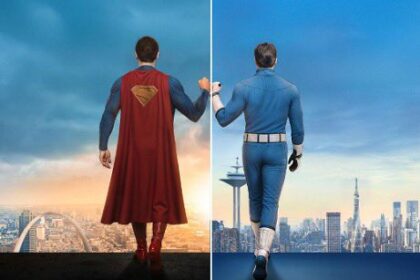
Film Producer Anton Jokikunnas recently shared a wonderful observation that “each film is a startup,” kind enough to add a thought I published the other day, “Entrepreneurship isn’t just a decision. It’s a personality type explored to be so by more researchers, universities, and studies than we can count.” Given my past in media, I haven’t been able to stop thinking about the fact that the parallels are incredible. I recently saw Superman with a friend and in that pass, my soul was healed and my heart warmed by the exceptional love story between Clark and Lois; the punk girl and unwaveringly kind guy, the anger he was able to vent (which though it created a rift, had her fighting to save him while he healed and grew to realize his mistake), the kiss at the end had me smiling with tears. What really stuck with me was that heated interview between them when he finally broke, “People were going to die!” With Anton’s thoughts, I found my way back to the movie with friends, determined this time to view it through a lens of entrepreneurship.
Before I go further, evident already, there are going to be spoilers here so if you haven’t seen it, go do that.
Article Highlights
- People were going to die!
- “Parents Aren’t for Tellin’ Their Children Who They’re Supposed to Be”
- Sequels, Spinoffs, and Streaming Deals: Why Your Startup Needs a Cinematic Universe
- “My point is I question everything and everyone. You trust everyone and think everyone you’ve ever met is, like… beautiful.”
People were going to die!
Entrepreneurship isn’t just a decision to start a business. Our entrepreneurial friends can all relate to the fact that we struggle with the world questioning our actions, just as Lois was doing of Superman in her interview. We talk of having vision, tenacity, and passion, while at the same time, our family and friends question our actions seeking to understand why we’re suffering so much, investing our time, money, and career, to build something that most can’t even comprehend. Investors pepper us with questions that to us often feel ignorant or irrelevant, leaving us exasperated to the point of boiling over, ‘because people were going to die!’
Aside from the love story, that heated “Maybe [hope and humanity] is the real punk rock” (h/t Matthew Teutsch) conversation, that outburst hit me in a very relatable way. We act with wavering conviction, with passionate determination, and with certainty that what we’re doing is right, because the alternative is simply unacceptable. But to society at large, Lois implies, that conviction is questionable, because existing solutions, or diplomacy, should be explored; never mind that in the mind of entrepreneur, “people were going to die” is a sentiment that drives our frustration with all the misunderstanding, the lack of support, and the questions, because how can there be any disagreement at all that we MUST act to make things better.
That conversation broke them, as Lois experienced doubt that she could maintain the relationship while Clark just threw in the towel and walked out. Until they had time to fully appreciate what they had.
And that dynamic, in this second viewed and different lens of entrepreneurship, made me realize, they’re not just sharing an experience with love, they’re conveying a lesson about founders in ventures. Something that I only realized this time because of my recent conversations with Nick Alter, that you must share a love for something so great, that you can question, argue, and even walk away in frustration or fear, so that you can see what you will do for one another to see that venture come to life.
Before you write a single line of code, before your pitch deck hits a VC inbox, before your startup becomes the next sob story of a “failed MVP,” ask yourself one thing:
Would you actually pay to watch the movie you’re making?
Because here’s the truth most founders never hear, especially the ones spinning their wheels in accelerators or slinging no-code garbage at strangers on LinkedIn: you’re not building a product. You’re building a world together. And if that world isn’t lived in, loved, and longed for before your so-called “launch,” you’ve already lost.
What struck me about Marvel’s new Fantastic Four is that what brings the MCU back to life isn’t yet another film, it’s the launch of a completely new and different world, just as James Gunn has accomplished with Superman this year. These films aren’t just entertainment, they’re high-budget startup analogs. Blueprints in mythmaking. Clinics in storytelling. Launch campaigns so well-orchestrated that founders should be taking notes like it’s a YC lecture series.
So, let me share my notes with you…
“Parents Aren’t for Tellin’ Their Children Who They’re Supposed to Be”
What makes Superman (2025) such a gut-punch about entrepreneurship isn’t the flying, the fighting, or the suit, it’s the foundation. It’s the memory of Clark watching a hologram of his parents from Krypton fade, while Jonathan Kent reminds him that being human isn’t about birthright, it’s about choice. That’s worldbuilding. And that’s startup DNA.
Every founder walks into a space thinking they need to solve a problem. But great founders, like great directors, build a universe around a question, not an answer. “What if we’re not alone?” “What if every person could tell their own story?” “What if we could live healthier, freer, longer?”
Marvel gets this. Gunn gets this. And your startup? It better start getting this too.
Before any good film launches, months (years) of work go into designing tone, texture, lore, and why we care. Just like a successful startup isn’t about the feature set, a film isn’t about the runtime. It’s about emotional connection, cultural relevance, and creating a sense of place and possibility.
Founders racing to fail rush an MVP and pretend being live is a launch. Gunn waited until the world needed Superman again and put in the work to know what the world needed.
“I’m as human as anyone. I love, I get scared. I wake up every morning and despite not knowing what to do, I put one foot in front of the other and I try to make the best choices I can. I screw up all the time, but that is being human and that’s my greatest strength.“
Clark says this to Lois in a quiet, tender moment that comes right before he willingly turns himself in, not to defeat, but to public scrutiny. He knows the risk. He knows the doubt. But the moment you feel his humanity is when you start to believe in his mission.
That’s how you market a film. That’s also how you launch a startup.
Gunn’s Superman marketing began nearly two years in advance of the premier (the “launch”). It started not with explosions or logos, but with a pair of worn-out boots. Leaked set photos. Then came Comic-Con teases, cryptic trailer drops, and an 11-foot Superman statue in London. Every beat was engineered, not for scale, but for soul.
Marvel mirrored this with Fantastic Four by dropping an alternate-universe teaser styled like a 1960s space race archive. The takeaway? You’re not just selling product, you’re repositioning the future. A startup founder launching cold without any marketing is like a film opening with no screen testing, no trailer, no cast interviews, no press junket, and wondering why the theater’s empty.
Startups fail because they don’t understand that marketing is the movie.
“It’s Not an S… It Means Hope”
(*Clark Kent, Superman)
This isn’t a punchline. It’s a pitch deck.
When Clark explains the symbol on his chest, he’s telling us what he stands for. Not what he can do. Startups get this backwards every damn day. “We do AI-powered retail integrations” isn’t a mission, it’s a specs sheet. What do you stand for?
Gunn’s Superman stands for second chances. Redemption. The need to believe in something better, even when the world is tired and broken. So, when the film’s marketing leaned into the emotional stakes (“He’s not here to save us. He’s here to remind us how to be human”), people showed up. Not because they love Krypton, but because they long for home.
Do your customers feel like they’re coming home when they discover you?
Sequels, Spinoffs, and Streaming Deals: Why Your Startup Needs a Cinematic Universe
Here’s where most of you totally blow it: you treat launch day like it’s your Oscar night. It’s not. It’s your table read. You’re just getting started.
Both Superman and Fantastic Four are keystones to sprawling, interlinked ecosystems. Gunn’s DCU already has Mr. Terrific spin-offs in the works. There’s a rumored Jimmy Olsen show. Streaming rights are being packaged. Toys, games, metaverse tie-ins, you think this is just about ticket sales?
Meanwhile, you launch an MVP with no roadmap, no community, no merch, and definitely no plan for growth beyond, “We hope TechCrunch covers us.”
What makes a cinematic universe work is the attention to continuity. The colors match. The physics work. The characters evolve. There are rules, and those rules are documented and shared. That’s what real founders do: they write the lore before the launch. Because the launch is just the beginning, just the first film that you hope turns into box office records, streaming syndication, merchandise sales, and sequels. Worldbuilding sets the tone, so the world knows what to expect. Then they build a product people don’t just use, they live in.
“You’re Stronger Than You Think. And Kinder Too.”
The relationship between Lois and Clark isn’t just romantic, it’s reaffirming. She doesn’t tell him what to do, she helps him understand why he matters. And in doing so, she makes the myth personal.
That’s your cofounder. That’s your first user. That’s your investor. That’s your community moderator who sticks around when servers crash.
As Clark’s father tells him, “Your choices. Your actions. That’s what makes you who you are.” (Thanks Cole Haddon, for your take in “‘Superman’ Could Turn Out to Be the Most Important Film of the Year“)
If no one is echoing your mission back to you, reminding you to act on it rather than just what people say, maybe you never made one worth echoing. Because Superman doesn’t work without Lois and Jonathan Kent, and your startup doesn’t work without believers.
“My point is I question everything and everyone. You trust everyone and think everyone you’ve ever met is, like… beautiful.”
You want more features. More funding. More hires. More retention.
But you skipped worldbuilding. You launched without soul. Built tech without tension. Marketed without myth. And what you got was a forgettable app; lukewarm response, zero longevity, no evangelism.
A failed startup is like a badly produced movie with no sequels. No one funds the next act. No one sticks around for the credits. Because there’s no world to care about, no character to root for, no future to imagine.
Marvel knows this. Gunn knows this. You need to know this. And you need to know that it takes the love that the cofounders share, and argue over, and take a break from, and then learn from, to find that.
Take Clark Kent’s confession to Lex Luthor, in one of the movie’s most vulnerable and revealing scenes:
“I’m as human as anybody. I love, I get scared. I wake up every morning and despite not knowing what to do, I put one foot in front of the other and I try to make the best choice I can. I screw up all the time, but that is being human! And that’s my greatest strength.”
That line captures everything missing when you ship without intentionality. Clark isn’t defined by his powers, he’s defined by his choices, his humanity, his emotional stakes. That’s emotional architecture created by his experienced with his family, Lois, The Justice Gang, and the Daily Planet. Fail that and you might have a wonderfully super powered startup, but no one cares. That’s what worldbuilding must be.
A defining moment, “Your choices, Clark. Your actions. That’s what makes you who you are. … I couldn’t be more proud of you.”
The next time you think about shipping that MVP early, pause. Ask yourself:
- Have I built my Metropolis?
- Does my Lois know the truth behind my mission?
- Am I angry when questioned but listening and learning?
- Has my Jonathan Kent given me guidance worth repeating?
- And most importantly, do people actually know what that S means in my brand?
In the end, startups and superheroes operate on the same script: it’s not what you can do, it’s why you do it, and the world that belief builds. Without that, your product may work, but no one will care.
If your product doesn’t feel like an origin story, it probably isn’t the beginning of anything at all

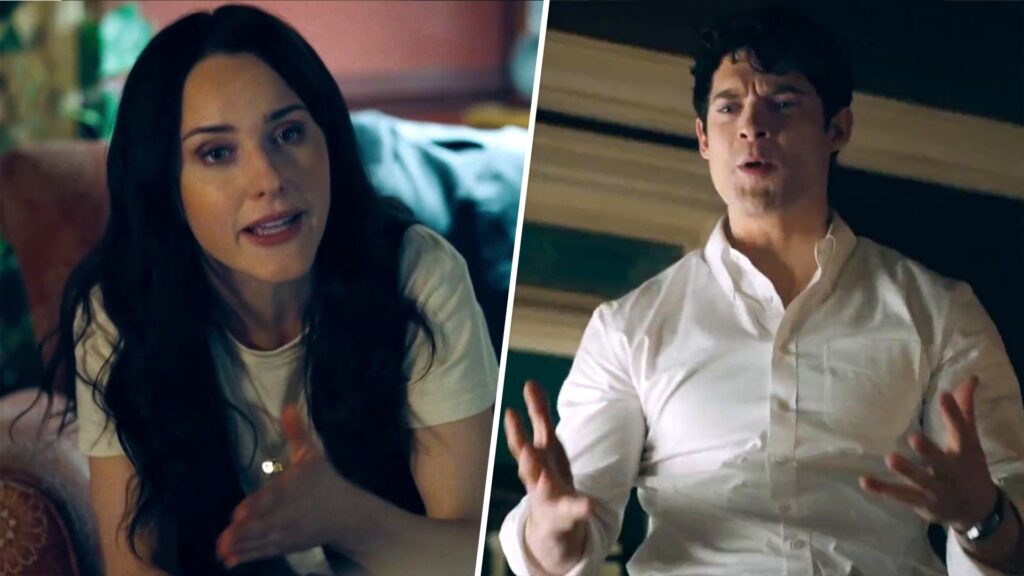
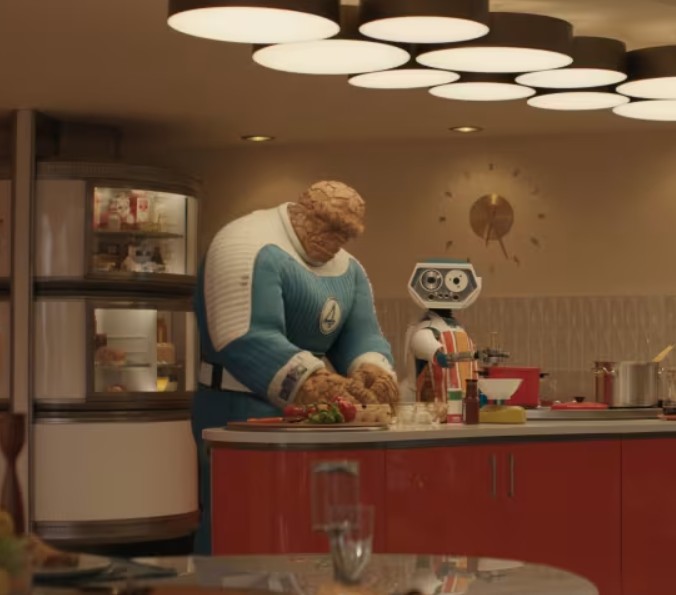
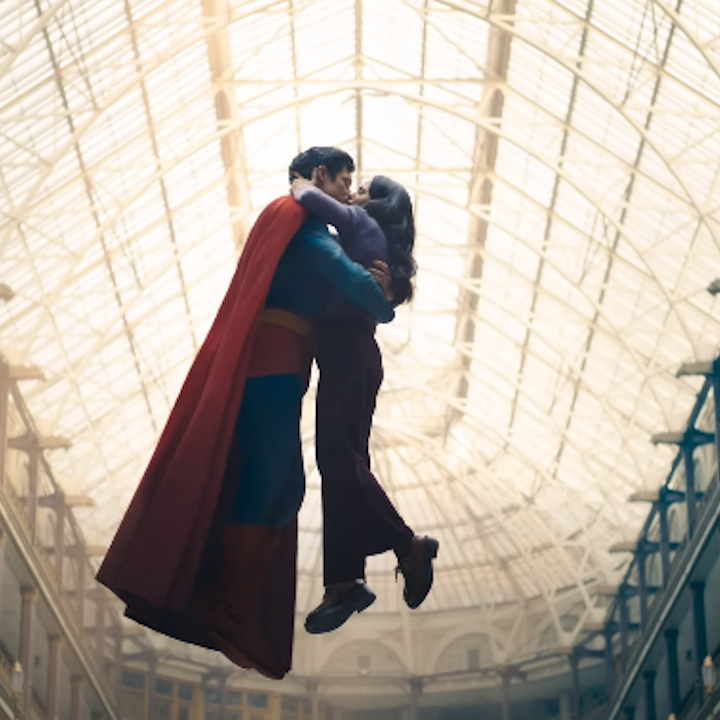
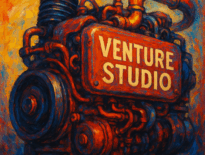
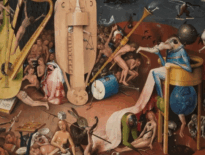
A great insightful article about all entrepreneurs and entrepreneurial processes: the successful ones are created by design to change and the worldview from what it was to what you the founder thinks it should be.
Pierre Clark Thank you, that’s exactly it. The best entrepreneurs aren’t just solving problems, they’re reframing reality. They’re worldbuilders in the truest sense, inviting people into a new way of seeing, working, and living. That kind of vision doesn’t happen by accident, it’s designed, like a great film, with intention behind every detail: tone, story, characters, setting, audience.
The ones who fail? Often they’re the ones who build a product without ever building belief.
Very well written Paul O’Brien! I enjoyed this one. Especially in the wake of a side project I have been working on. While not another start up, still relevant!
Entrepreneurs and start up founders please give this a read.
Bill Combes thank you!!
Side project, do tell?? I’ve had more than a few people mentioned they’re working in film now
Worldbuilding might be easy for demigods and iron men, but it’s a harder sell for turtles taking orders from a pizza rat.
I can’t help but bring a faith lens to this. Perhaps because I know of no other way to process this than through that lens. My commitment to God after I sold my last company was simple. I would do nothing that wasn’t focused on changing the world for the better. That said, I know folks who change the world in their role of janitor, one interaction at a time. I know others who make 9 figures who don’t. Business is one of the most uniquely human experiences we have. And yet, ironically, the more money, fame, success and expected return that exists, the harder it seems to get to uphold that simple truth. Perhaps that’s another layer to the model that we need to consider? How do we identify, establish, validate, expand and ulitimately champion the soul of whatever we are building? Maybe that’s what we really mean by mission? At the same time, we have to respect that whatever the monetization model is of any business ultimately controls/owns whatever the mission (reading now as soul) of it is as well. I’ll expand more on this later. This was a deep one to try and ruminate on while running after three little kids!
Nicholas Alter give this a watch. And then look for my comment about Superman’s human speech
https://youtu.be/iHgcBcCSJgM?si=3Whk87ObJXO1Q0SF
Paul O’Brien Holy crap that was so good. I thought I was going to wait to see this at home. Now I need to go see it in theaters.
Really great observations, Paul O’Brien. Given that I just took my daughter to see Superman on Friday night, luckily no spoilers here for me. But you nailed it! Especially for me, pursuing film – I’ve said many times, building an unscripted docuseries is like building a startup – it IS building a startup! Thanks for this, and for hope!
Zac Jiwa Love that you saw it with your daughter, that film hits different when you’re watching it through a lens of legacy. Yes to the docuseries-as-startup comparison. You’re literally crafting a story world, assembling a team, pitching vision, building traction… all before the “product” even exists. I’d love to hear more about your project if you have a link or teaser you’re sharing publicly. I think a lot of folks reading this would be inspired by how you’re doing it.
“In the end, startups and superheroes operate on the same script: it’s not what you can do, it’s why you do it, and the world that belief builds. Without that, your product may work, but no one will care.
If your product doesn’t feel like an origin story, it probably isn’t the beginning of anything at all.”
My Axiom
Universe = Ecosystem = Community = Customer as Partner, where story (content) drives hardware.
Solid read! As AI forces “everyone” to become entrepreneurial-I’d start by reading this post first, then slip in a few YC and other classical incubator reads as you start your journey to change the world.
Thank you! That’s praise and I agree with you, AI is forcing humanity to be more entrepreneurial
Elizabeth Horne But they still rebuild! Worldbuilding isn’t just for gods and billionaires with arc reactors, it’s even more vital for the scrappy, oddball heroes with heart. Because when your origin story starts in the sewer, the world you build has to be unforgettable.
I enjoyed this read! Totally with you that great startups are able to build worlds people want to live in.
That said, I do wonder if this kind of purposeful world-building will get drowned out in a sea of AI-enabled “vibe startups” with all aesthetics and no substance. The bar for shipping has never been lower, but maybe that makes meaning even more valuable.
Thanks for the spark!
Martin Klug or maybe we can hope that this causes exceptional startups to rise above the sea of no substance AI “vibe startups”
Paul O’Brien Hi Paul. Just finished watching it. Thank you! Nice share…for sure lots of folks have and will continue to see and sense this emerging trend (or huge problem) … a couple of years ago I too felt this tsunami of pain coming, and if you are familiar with how we traditional deal with economic downturns, or corporate downsizing then you know we are going to be in for a wild ride for the next 10+ years as we work through the next decade of AI. The dotcom era was only 25 years ago. That era was like DOS compared to what we are facing today.
Check out this vid…its homebrew so please excuse the roughness to the message. I just uploaded it from a 2 year ago deck I shared for a few folks way back when, of which Ive recently updated to account for all the digital displacement going on in the tech space.
Its an entrepreneurs approach to solving the growing Despair Economy as I see it.
Super appreciate the video you shared!
https://youtu.be/ZiERIoynMQo?si=7ftFKhOHlTVbF9s0
what’s coming isn’t just another wave of disruption, it’s a structural transformation. And like you said, the way we traditionally handle downturns or layoffs just doesn’t scale to the velocity of AI displacement. What we’re seeing now isn’t cyclical, it’s architectural.
Always interested in entrepreneurial frameworks for navigating what I’ve been calling the “new economic infrastructure.” The Despair Economy is real, and if we don’t replace the narrative with something participatory, meaningful, and durable, we’ll repeat the worst parts of past transitions, just faster and more invisibly.
Do you have a good write up (or transcription) of that video?
Paul O’Brien Yes!
I love this. Funnily enough I had seen your post over the weekend but only got as far as thinking it was a cool pic – didn’t read it!
This hit : You’re building a world together. And if that world isn’t lived in, loved, and longed for before your so-called “launch,” you’ve already lost.
I feel like it is even more relevant for a Venture Studio as it is not just a one product thing, but you have to really have the right team in place (casting), that requires worldbuilding so as to get them onboard, same for the investors. My first found of investors I’m calling ‘first believers’ so i really need to think on making the ‘world’ they are investing in something they can ‘see’. (Mine is a regional studio with regional development at its core so believing in a better future is 100% it!)
Thanks for sharing this.
Sally, This means a lot, thank you. Yep, for a Venture Studio, worldbuilding isn’t just relevant, it’s foundational. You’re not pitching a single product, you’re inviting people into a sustained universe of ideas, people, and possibility. That requires casting with intention, directing with clarity, and designing a world your first believers can actually see themselves living in.
I just published my Venture Studio piece; how and why venture studios are uniquely suited to create not just startups, but economic infrastructure. Especially in a regional context like yours, where belief in a better future is the story.
? https://www.linkedin.com/pulse/stop-funding-accelerators-invest-venture-studios-instead-paul-o-brien-wkluc/
Would love to hear more about how you’re shaping the world of your studio; send me anything you’ve written or pitched.
The first believers matter most because they set the tone for everyone else who comes next.
This is what we guide people through at Another World is Possible, realigning their organization to a real purpose higher than personal profit, creating a community quest to transform the world into a vision that becomes possible when WE become the ones we’ve been waiting for, and rebranding around the world we are here to create as a truly heroic story that we get to be the characters creating.
Any company just making stuff in a self centered way is not only making their own life miserable even if they succeed, they’re actually setting fire to their ability to genuinely tap into the epicness that is going to make them the most money anyway.
We are here to remember that life IS the movie, and we are its authors and creators, the heroes we need, and we have the power (with a little help from your visionary story guides at AWP) to write it into a happy beginning.
Zachary Marlow Yes, beautifully said. You can’t build a legendary company with a transactional narrative. When you center purpose, story, and community, you don’t just create alignment, you unlock momentum. Because people don’t rally behind “stuff,” they rally behind a shared quest.
Love the framing of a “happy beginning.” That’s exactly what worldbuilding in entrepreneurship is: not the endgame, but the invitation to co-author something meaningful.
Listen, I am not a DC Comics connoisseur nor a Superman aficionada, but my goodness do I love this, Paul O’Brien.
When daring to start a new venture, a new project, a new business, the greatest gift you can give yourself is to create, understand, and discover the world of your project.
In my own work, before anything becomes a course, a script, a show, a keynote, or a mural, I always begin by uncovering the world it exists in.
Who belongs in this world? Who doesn’t?
What does it look like, taste like, smell like, feel like?
What are the beliefs of the world? The ethos?
When you treat your next idea; a podcast, a brand, a career shift, a business, as a world instead of a task, everything shifts.
Understanding and structuring the world first becomes essential when things get hard or unclear. It helps you move past blockages and becomes the compass for big decisions. You’re no longer guessing. You’re following the internal logic of the universe you’ve created.
This is the difference between building something just to check a box and building something people can actually resonate with and fully step into.
My life changed when I realized every idea comes with its own world. The idea already has the answers. My job is to keep showing up for it, uncovering it, and advocating for it.
Worlds tell you how they want to be built.
They reveal the tone, the boundaries, the aesthetic, the feeling.
This is how my upcoming show PLAYDATE was born.
A world where magic is real, where my inner child is the creative director, and where play becomes the gateway to Genius.
So instead of asking, “What should I make?”
Ask, “What world am I inviting people into?”
If you’re stuck, overwhelmed, or creatively flat…
Build the world first.
The rest will follow.
Projects end.
Worlds invite you to stay.
Wow. I’m blown away by this and your sharing it! Thank you.
The buzzword of careers sounds like it’s going to be “storytelling” but world building applies just as well.
Paul O’Brien thank you for starting this conversation!!
Absolutely! We all know the greatest most iconic stories aren’t just well told, they are inhabitable. Storytelling is a stunning little buzzword and my life’s passion but world building is the architecture underneath it all.